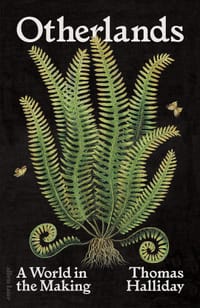From a dazzling young palaeontologist and literary talent comes the Earth as we've never seen it before
What would it be like to experience the ancient landscapes of the past as we experience the reality of nature today? To actually visit the Jurassic or Cambrian worlds, to wander among their spectacular flora and fauna, to witness their continental shifts? In Otherlands, the multi-talented palaeontologist Thomas Halliday gives us a breath-taking up close encounter with worlds that are normally unimaginably distant - and just as fragile as our own.
Journeying backwards in time from the most recent Ice Age to the dawn of complex life itself, and across all seven continents, Halliday immerses us in sixteen lost ecosystems, each one rendered with a novelist's eye for detail and drama. Yet every description - whether the colour of a beetle's shell, the rhythm of pterosaurs in flight or the lingering smell of sulphur in the air - is grounded in fact. We visit the birthplace of humanity on the shores of the great lake Lonyumun, in Pliocene-era Kenya; in the Miocene, we hear the crashing of the highest waterfall the world has ever known as it fills the evaporated Mediterranean Sea; and we gaze at the light of a full and enormous moon in the Ediacaran sky, when life hasn't yet reached land.
Otherlands is a naturalist's travel guide, albeit one of lands distant in time rather than space, showing us the last 500 million years not as an endless expanse of unfathomable time, but as a series of worlds, simultaneously fantastical and familiar.
Thomas Halliday is an Associate Research Fellow at the Department of Earth Sciences of the University of Birmingham. His PhD won the Linnean Society Medal for the best thesis in the biological sciences in the UK, and he won the Hugh Miller Writing Competition in 2018. He was raised in Rannoch in the Scottish Highlands, and now lives in London with his family.

